




 This year, amidst the sun-drenched networking and high-powered meetings, two physical phenomena drew attention on the Croisette: the city was undergoing a major construction project, and the wind was blowing fiercely.
This year, amidst the sun-drenched networking and high-powered meetings, two physical phenomena drew attention on the Croisette: the city was undergoing a major construction project, and the wind was blowing fiercely.
Both served as pertinent metaphors for the state of marketing, which is in the midst of a major transformation and shifting forces that go beyond the industry itself. From AI to the influence of culture and creators to urgency around DEI and sustainability, this year, the 2023 Cannes Lions International Festival of Creativity was focused on tackling the emerging topics and issues that will have the biggest impact on brands’ staying power. Creativity, of course, was at the heart of the solutions, and it was celebrated for its ability to drive business growth, especially as economic uncertainty continues.
From the Daily Dose programming at MediaLink Beach to the official Lions sessions in the Palais, the conversations all shared an important undertone: Cannes is a place where serious business happens and problems are solved. Following are some of the trends that made waves with marketers and captivated us the most.
Nothing artificial about this trend
"AI has been the talk of this week,” said Diageo Chief Innovation Officer Mark Sandys in what was something of an understatement. Indeed, the theme of day one of Daily Dose was aptly named “Will AI Kill the Creative Star?” — though the topic undoubtedly reverberated throughout every conversation throughout the week.
I moderated a talk on the subject with Salesforce President & Chairwoman Advisory Sarah Franklin, Discover SVP, Chief Marketing Officer Jennifer Murillo and P&G Group Vice President, Future of Advertising Kimberly Doebereiner, and the resounding takeaway was that we’re living in a moment as opportune as the dawn of the Internet, coupled with great responsibility.
“We’ve landed on the AI moon, and I’m excited,” remarked Franklin.
AI’s nascent tools promise to unlock more creativity while making the daily workload of talent much more efficient — or in the eyes of some, threaten the jobs of many, particularly creatives and media planners.
Kevin Mayer, Co-Founder & Co-CEO, Candle Media, urged executives to start using AI products in their work, rather than risk getting left behind. “Generative AI is absolutely a tool in a creator’s arsenal,” he said. “It can help with animation and live action video effects, but will never displace true human creativity that depends on innovation. Invention is a human attribute.”
The hope is that AI makes brand, agency and media leaders’ jobs easier. Yet the more these groups master the use of these tools, the thornier the issues that may arise.
“Every conversation has AI at the beginning, end or middle,” said Michael Kassan, CEO, MediaLink. “The important and interesting questions are around IP and ownership. When will it stop being my idea and start being AI’s?”
Danilo Boer, Global Creative Partner, FCB Global, added, “We’re going to have to redefine what creative things are. We need to distinguish between a creative idea vs. a ‘thing.’”
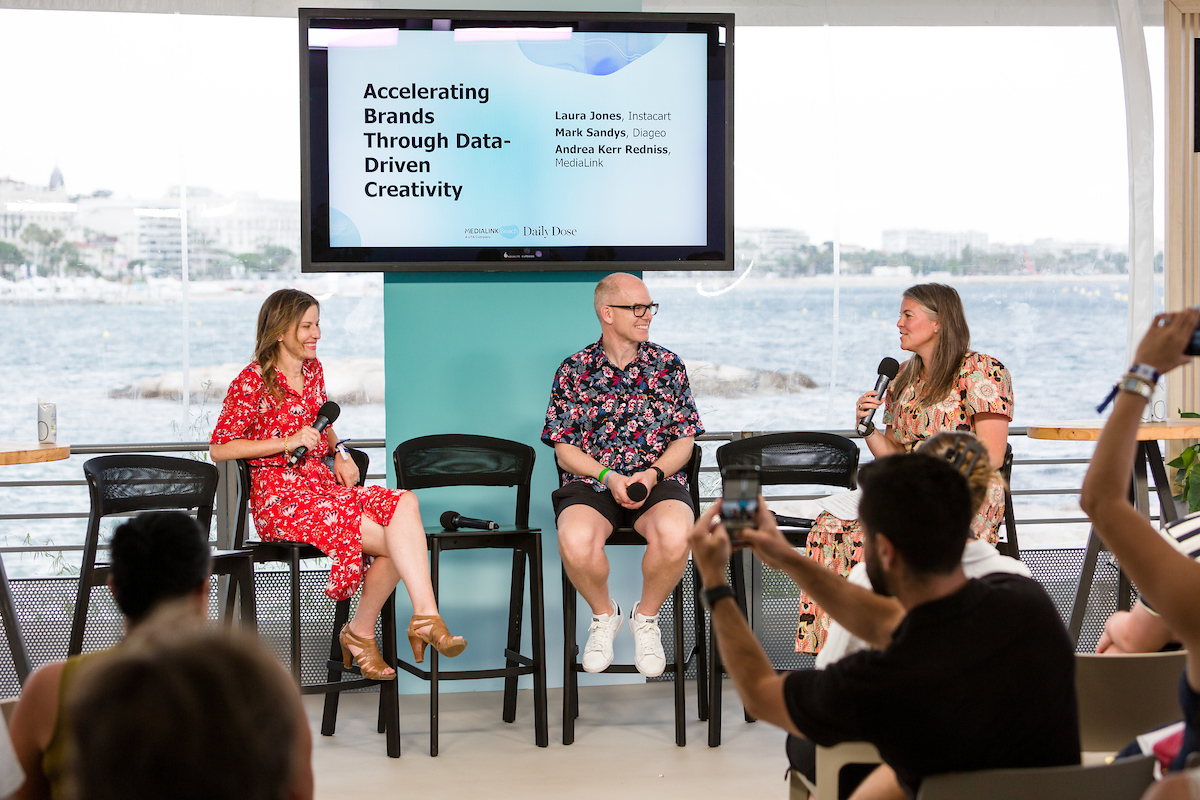 Instacart CMO Laura Jones is hoping that we don’t lose sight of the power of the kinds of big ideas only humans are capable of. She talked about how the eCommerce brand — known for being data-driven — went with an unexpected TV ad featuring Lizzo talking about her love of cooking.
Instacart CMO Laura Jones is hoping that we don’t lose sight of the power of the kinds of big ideas only humans are capable of. She talked about how the eCommerce brand — known for being data-driven — went with an unexpected TV ad featuring Lizzo talking about her love of cooking.
“If we asked an AI bot,” she said, “it might have given us something expected. As much as data can tell you what the expected choice is, creativity can help lead you to the unexpected.”
Brands will also need to help set consumers’ expectations and make it clear how they are using technology and data in the production and targeting process, as trust will become paramount and potentially fragile.
Bottom line: It’s incumbent upon marketers to fine-tune AI expertise, experiment and set guardrails today, both for immediate work and shaping the industry’s future. The impact on talent will be profound, but through retraining, we’ll create new skill sets that will be mastered by applying what our industry does best — creativity.
Transformation, healthy risk-taking and smart partnerships prevail over economic fears
Aside from AI, the other prevalent issue underpinning nearly every discussion at Cannes was the hard-to-pin-down state of the economy. Yet there are hopeful signs of optimism, as many marketers spoke of using this moment to hone their strategies, think more creatively from a business perspective, and make some smart bets to build resilience.
“Creative risk-taking is core for marketers,” said Drew Panayiotou, Global Chief Marketing Officer, Pfizer. “You have to be really good at listening.”
In a keynote conversation with Kassan, Delta Air Lines SVP and Chief Marketing and Communications Officer Tim Mapes and American Express President, Enterprise Strategic Partnerships Glenda McNeal discussed how complementary brand partnerships and a healthy give-and-take between partners can fortify brand success and generate a priceless level of loyalty from consumers that pays off.
“It’s amazing what you can accomplish if you’re equally focused on the long term,” said Mapes.
Bottom line: With high risk comes high reward — marketers need to lean into bravery to stay resilient.
Creators burst on the scene and offer marketers a promising approach
One bright spot of the economic environment remains the booming creator economy, which many Cannes attendees cited as not only promising for reaching consumers and gaining relevance, but as an effective vehicle for driving a strong return on investment, given the powerful connection influencers have with their fans. This year’s Cannes stood out for attracting the most creators to date as the trend became firmly established across the marketing sector — with talent increasingly asking to be part of the marketing process.
Adam Bauer, SVP, Partnerships, FaZe Clan remarked that as brands connect with the right talent, the closer they are likely to get to their shared consumers and the more they need to be willing to hand over some of the control to the audience. “Listen to your creators,” he said. “Trust and lean into them. Don’t create messaging for them; work with them to translate the message to fans.”
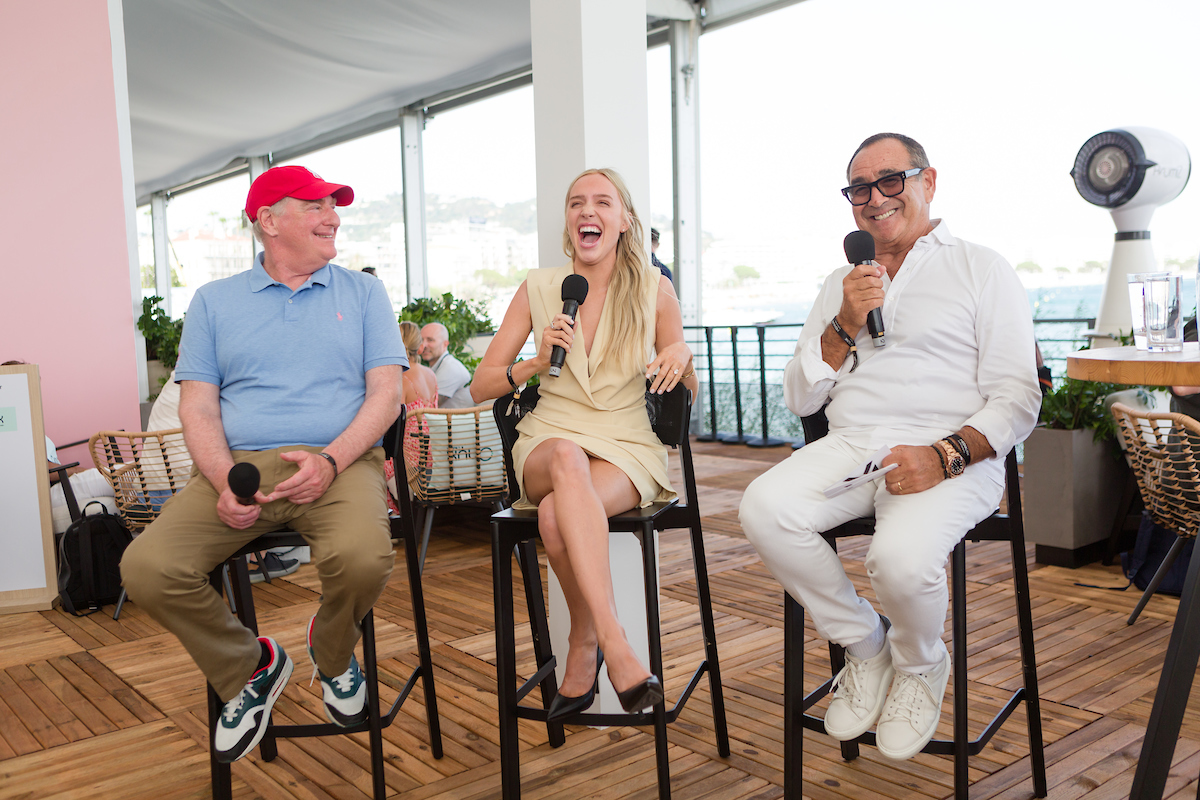 Call Her Daddy podcaster Alex Cooper, who spoke in a cocktail conversation with Kassan and Paul Wachter, Founder & CEO, Main Street Advisors and Chairman, UTA Board of Directors, was the perfect example of the closeness creators build with their communities and the power that can wield for brands. “[For] anyone that’s building a brand, the only thing that matters is, ‘who are you focusing on?’” she said.
Call Her Daddy podcaster Alex Cooper, who spoke in a cocktail conversation with Kassan and Paul Wachter, Founder & CEO, Main Street Advisors and Chairman, UTA Board of Directors, was the perfect example of the closeness creators build with their communities and the power that can wield for brands. “[For] anyone that’s building a brand, the only thing that matters is, ‘who are you focusing on?’” she said.
TikTok Chief Marketing Officer Kate Jhaveri added, “Anybody can be a creator, and that changes the dynamics of how brands need to think about speaking to consumers.”
It also helps if you're entertaining. For the second year in a row, UTA brought many of its most compelling creators from across Hollywood and the digital realm to meet with senior marketers and speak on stages about their partnerships with brands — spanning Cooper, Kevin Hart, Tiffany Haddish, Mike White, Emma Chamberlain and more. A key throughline was the power of humor, which Haddish touched on for its ability to connect brands to people from all walks of life in conversation with Kassan.
Kassan also interviewed Kevin Hart with Hartbeat CEO Thai Randolph and separately introduced him as he was honored at the Palais as the Entertainment Person of the Year.
In a conversation with Jeffrey Katzenberg, Co-Founder, WndrCo, Hart made it clear that he doesn’t want to just be a TV spokesperson, but a co-creator with brands. His production firm Hartbeat has developed web video series like the Old Spice-funded “Cold as Balls,” as well as podcasts and radio shows.
As much as he likes to make commercials, he’d rather have brands tap into the infrastructure his team has put together. “I would much rather be a partner [to a brand],” he said. “I don’t want you to give it to me because I’m Kevin Hart. My likeness gives me an opportunity…let me pitch.”
Bottom line: Cannes Lions’ choice for the Entertainment Person of the Year and the proliferation of talent all over the Croisette is prescient for where the industry is going. Creators and brands want to work together, because it creates cultural capital. The best partnerships allow each side to complement the other and stay true to what they stand for.
Maintaining purpose takes on renewed urgency
Not only do marketers have to read the tea leaves regarding a confounding economic environment — they increasingly grapple with the challenges of being caught in the culture wars. Recent campaigns ahead of the Festival resulted in brands being forced to take sides and make difficult decisions — a topic that was hard to ignore.
Many of the brand leaders who spoke at Cannes urged the industry to maintain its courage and purpose.
“As a big brand, we shouldn’t just be participating in culture, we should be creating culture,” said Tariq Hassan, Chief Marketing Officer, McDonald’s. “For us, not taking the risk is the risk, so we have to create an environment in which it is safe to do that.”
Maybe easier said than done. Yet consumers are taking notice, and keeping score of not only who takes risks, but also who waffles under scrutiny, according to Edward Fogarty, Senior Vice President, Agency Head & Diversity, Equity & Inclusion Champion, Paramount.
“There is loyalty until you are pushed,” he said. “When brands get scared, [some] pull back. They should double down.”
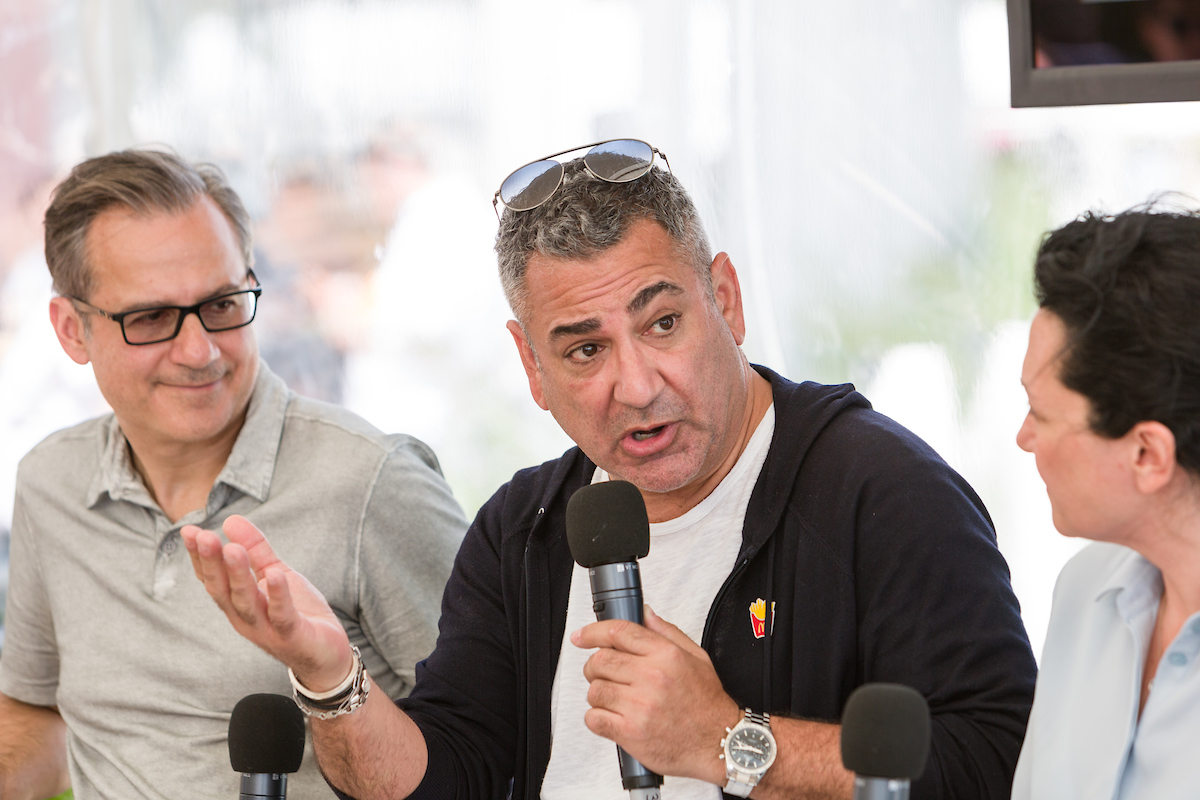 In fact, for all the recent controversy, a number of consumers appear to be telling brands what matters to them, and how values are shaping their purchasing decisions. Harnessing that passion is still a worthy and effective mission. “The power of purpose, enabled by the whole ecosystem of our brand and the engagement of community, is the real transformation,” said Gülen Bengi, Chief Growth Officer, Mars Wrigley.
In fact, for all the recent controversy, a number of consumers appear to be telling brands what matters to them, and how values are shaping their purchasing decisions. Harnessing that passion is still a worthy and effective mission. “The power of purpose, enabled by the whole ecosystem of our brand and the engagement of community, is the real transformation,” said Gülen Bengi, Chief Growth Officer, Mars Wrigley.
Bottom line: Consumers will reward marketers that authentically invest in and support specific communities.
Hitting the gas pedal on DEI
For the past several years, many brands have made very public pledges to commit more attention and dollars toward minority-targeted and minority-owned media. Much progress has been made. But in light of the economic climate, there is growing worry that some marketers are wavering.
“Progressive steps that were being taken are being pulled back on,” said Alexandra Kennedy, EVP, Commercial Strategy, My Code. “That makes me nervous.”
“This year has been interesting,” added Tiffany Nasralla, Chief Revenue Officer, iOne Digital/Urban One. Nasralla noted that progress has been made by many brands, but others are starting to cite economic headwinds as a reason to pull back on diversity efforts. “We’re talking about 1 to 2% of budgets. That is not something you should be cutting, especially when you think about where your growth is going to come from.”
Attendees emphasized that it’s not just about investments in media, it’s also about the messaging and the creative work itself — and that starts with marketers trusting their intuitions. On a Daily Dose panel featuring Black Executive CMO Alliance (BECA)’s Future Leaders, Jerri DeVard, BECA’s founder, commented that “as marketers, we have to have that curiosity that something is wrong or missing.”
That extends to nurturing the talent pipeline, which BECA is doing by offering young and mid-level Black marketers the opportunity to pitch their marketing ideas and come to Cannes to share their thinking with senior executives.
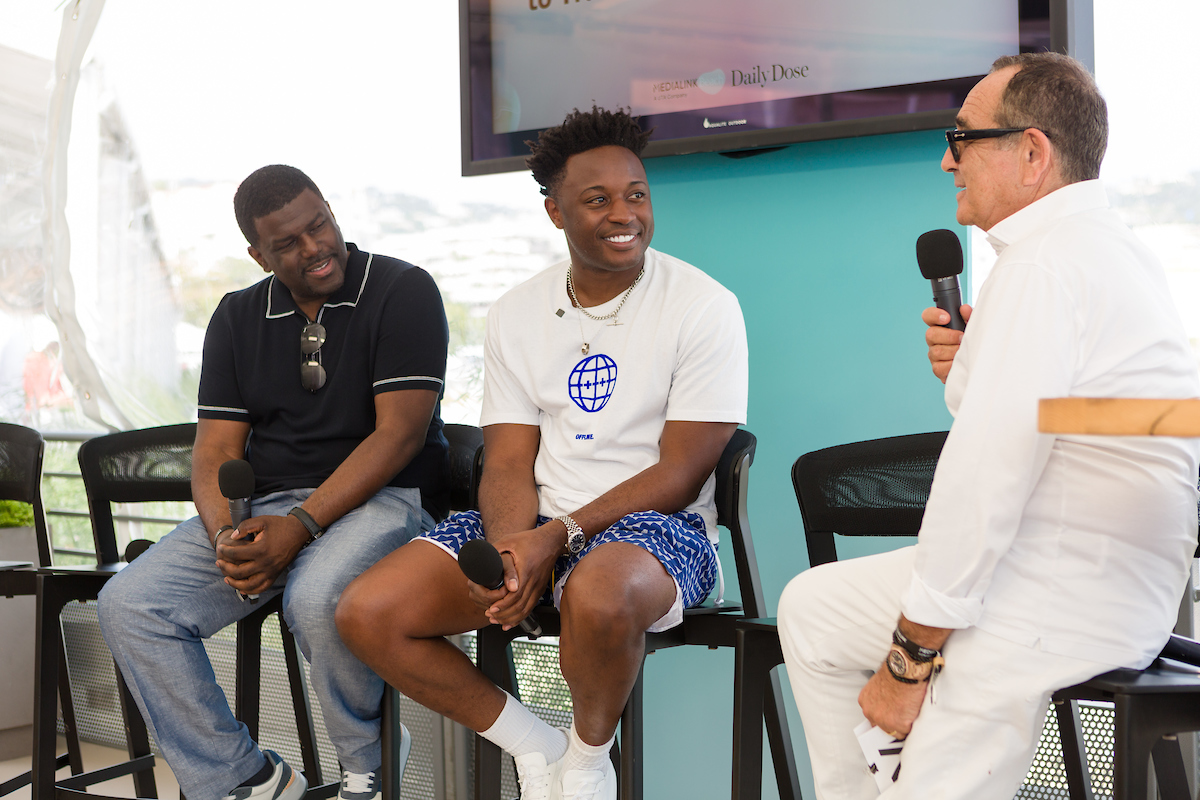 Group Black CEO & Co-Founder Travis Montaque concurred on the importance of developing diverse talent, speaking with Big Brothers Big Sisters of America CEO Artis Stevens on how leaders can tap into their innate propensity for mentorship to make changes.
Group Black CEO & Co-Founder Travis Montaque concurred on the importance of developing diverse talent, speaking with Big Brothers Big Sisters of America CEO Artis Stevens on how leaders can tap into their innate propensity for mentorship to make changes.
Bottom line: Now is the time to double down on commitments to diversity and inclusion across all areas of marketing. Culture and the make-up of generations are moving quickly, and brands that are part of the solution to integrate DEI into long-term planning will surpass those that don’t.
Retail media makes its mark
Retail media is projected to become a $45 billion category in the U.S. this year, and it’s only expected to grow larger. Amazon once again had a massive footprint at the event, but this year the likes of Target’s Roundel, Instacart, Walmart Connect and Albertsons made their presence felt on the Croisette, with various activations and many meetings with marketers that grew from last year.
Expect these emerging players to continue to be aggressive in their attempt to break into the digital advertising leaderboard.
“The sheer volume of industry-wide conversations focused on the benefits and expected growth of retail media is at an all-time high — and it’s not showing any signs of slowing down,” said Kristi Argyilan, SVP, Retail Media, Albertsons Companies.
Bottom line: Retail media networks offer brands a smart alternative to reach consumers at the point of sale and understand their commerce habits through data in a way that no other media platform can. Brands should pay close attention to how they evolve their advertising offerings and build increasingly sophisticated solutions over time.
A powerful influence
It was clear coming out of Cannes that the macro changes addressed throughout the week come with challenges that our deeply creative talent pool is uniquely qualified to solve. We have an opportune moment in front of us to shape culture, rally communities and shift consumer attitudes — not to mention creatively apply the most powerful wave of new technology seen in decades.
My hope is that we all came away from the Festival understanding the great privilege and power we hold to make a meaningful impact, no matter which way the wind shifts.
Photo credit: Rebecca Marshall / www.rebecca-marshall.com
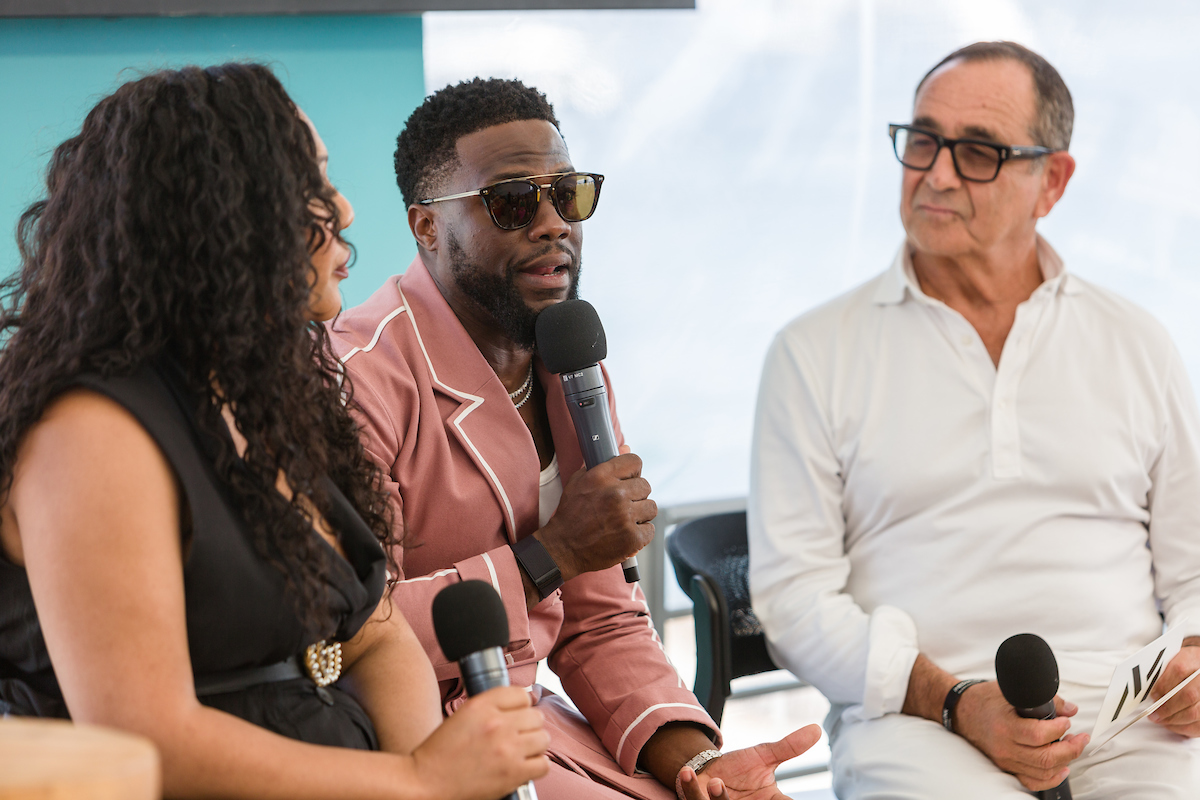
Andrea Kerr Redniss, Managing Director, MediaLink
"This year at Cannes, content was king, emphasizing customization and audience targeting. Data was more present than ever, fueling breakthrough creative like Mastercard's “Where to Settle,” helping refugees from Ukraine; Heineken’s “Beer Match,” solving Fortnite players' frustration over poor game matches; Apple's “RIP Leon,” erasing texts and VW’s “Inside Job,” targeting mechanics to hire.
After all of this, the undercurrent to everything was about driving results. However, many of the winners were brands’ corporate responsibility initiatives, not the next breakthrough idea driving meaningful market share or revenue growth.
While brands fully believe in content, they are looking for new ways for media, creativity and data to translate award-winning creative into tangible business results. In most cases, brands are not looking to do a full-scale agency review, but rather restructure how teams work together with agency partners to develop the ideal model, including aligning compensation structures, to allow and promote this collaboration.
Overall, Cannes was filled with great insights and human truths, but left room for brands to innovate on models that demonstrate meaningful brand and business impact. I’m excited to see how this is brought to life in 2024."
Christopher Vollmer, Managing Director, MediaLink
"Building attention, relevance, trust, sales and loyalty: these are top agenda items for virtually every CMO. At Cannes Lions, it was abundantly clear that creators have become central to how innovative marketers engage successfully with consumers in today’s fragmented media landscape. Leading brands are recognizing that collaborations with creator talent — whether Hollywood stars like Kevin Hart or personalities and podcasters like Emma Chamberlain — are key to achieving cultural and commercial impact. Why? Because creators have the content, artistic sensibility, and social permission to break through the clutter.
Unilever’s Dove demonstrated these creative and media principles with its “Turn Your Back on Bold Glamour” campaign and was rewarded this year’s Media Grand Prix. Leveraging beauty influencers Alex Light and Louise May among others, Dove invited communities to upload videos where they turn their backs literally on using harmful beauty filters in social media."
Jonah Minton, Senior Vice President, MediaLink
"Creators and generative AI dominated Cannes Lions 2023. The Festival was electrified by the largest number of creators that have ever attended. Creators advised brands on how to build trusted and passionate communities that lead to greater customer lifetime value. An actionable insight came from Captiv8’s CBO Meridith Rojas, who emphasized the importance of brands focusing on micro trends and fan bases as a way to be more authentic.
Generative AI won the festival’s buzzword bingo. The key takeaway was that generative AI isn't a shortcut for creating more content or cutting OpEx but an opportunity to supercharge our creative abilities. Sarah Franklin, CMO of Salesforce, stated, “AI is the new UI.” Franklin’s words reinforce the need to develop a new operating model for how we collaborate with AI. As we look towards the future, creators and gen AI will be intertwined in unique ways that will transform the industry."
Melanie Sweet, Senior Vice President, Global Talent Advisory, MediaLink
"Whilst AI, as predicted, dominated discourse up and down the Croisette this year, it was content creators who showed up in force to cement their place in the advertising consciousness. They claimed well-earned seats on stage and prime positioning on the beach and, more pointedly, at the brand strategy table. Co-creation strategies were a major topic as brands aimed to leverage the power of the creator economy to build products, audiences, and conversion. Many marketers sought to simultaneously surf subculture into the mainstream and monetize niche communities at scale. Influencers demonstrated the purest alchemy of creativity, technology, and effectiveness. And in the current complex political climate and challenging economic environment, creators like the brilliant and hilarious Tiffany Haddish, who spoke at MediaLink Beach, were a refreshing reminder that our industry has the power to bring joy. As the industry evolves towards long-term brand-influencer relationships, understanding the changing dynamics between creators, brands, audiences, agencies, digital platforms, and vendors will be critical in 2023."
Sosti Ropaitis, Executive Vice President, Head of Web3 Advisory Practice, MediaLink
"AI was part of most, if not all, panels in Cannes with marketers trying to predict the use of the technology and the impact that it will have on creative, operations and marketing overall. Unlike other popular topics, AI conversations essentially centered around two main categories: a) optimizing marketing operations and b) supercharging creativity (the latter of which was reinforced by innovative winning work in the Palais, like Nike’s Grand Prix-winning “Never Done Evolving Feat. Serena.”) Almost every panel put emphasis on the need for personalization in marketing as well as the importance of the expertise of the marketer designing the strategy and selecting the technologies employed to activate. The rapid change in technology in the last two years (blockchain, Web3, AI) has put a lot more emphasis on the need for human and intellectual capital needed to succeed, as well as the adoption of specific technologies that would accelerate success. The next 10 months should be focused on the transformation needed to establish marketing 3.0 for marketers, agencies, and technology startups."
Sam Glynne, Head of EMEA, Entertainment and Culture Marketing, UTA
"The marvel of Cannes Lions is its depth and breadth. It’s a Disneyworld of attractions covering every topic in every imaginable way. Cannes 2023 certainly had creativity very much at its heart, but the energy and commitment to every topic — across creative, media, entertainment, technology and social justice — was abundant. The thorny issue of AI was out there in a big way, but that one was the Space Mountain of Cannes — we’re all still in the dark, generally terrified, but checking in for thrills and excitement.
The intersection between brands and entertainment was a hot topic with brand-funded movies, TV content, gaming and music being discussed by brands and agencies alike. Content creators flocked to Cannes — many for the first time — to meet with brands not only as a source of finance, but also inspiration and access. Agencies battled with how to infiltrate culture — and entertainment-based properties won Cannes Lions across multiple different award sectors."